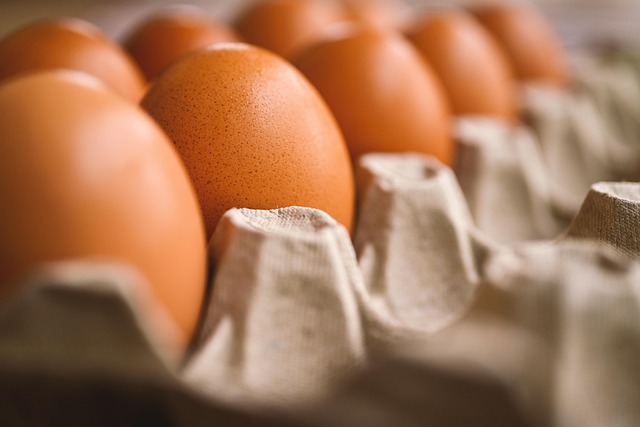Advanced maternal age (35+) poses challenges for women conceiving due to declining egg quality. Tailored fertility treatments like IVF and egg donation programs gain prominence. Egg donation uses younger donor eggs to enhance conception odds for older women, addressing age-related fertility issues. The process involves medical evaluation, ovulation induction, egg extraction, freezing, and transfer using assisted reproductive technologies (ARTs). Success rates vary based on egg quality; consulting healthcare professionals is crucial for informed decisions in fertility treatment for older women.
For many women, achieving pregnancy after 35 is a remarkable journey, often fraught with challenges. As maternal age advances, understanding the complexities of fertility becomes crucial. This article explores egg donation as a viable option for women seeking motherhood at an advanced age. We delve into the motivations, process, and benefits, offering insights into how this treatment can enhance fertility prospects for older women, opening doors to parenthood once thought closed.
Understanding Advanced Maternal Age and Fertility
Advanced maternal age, typically defined as 35 years or older, brings unique challenges for women seeking to conceive. As a woman’s eggs naturally decline in quality and quantity over time, fertility rates decrease significantly. This demographic shift has prompted a growing interest in fertility treatments tailored for older women. Fertility treatment for older women has evolved to offer various options, from assisted reproductive technologies (ART) like IVF (In Vitro Fertilization) to egg donation programs, which have proven effective in helping these mothers-to-be realize their parental dreams.
Understanding the impact of age on fertility is crucial. With each passing year, a woman’s eggs become less viable, increasing the risk of miscarriage and genetic abnormalities. Egg donation, therefore, emerges as a compassionate solution, allowing older women to bypass some of these challenges. It involves receiving high-quality eggs from a young donor, enhancing the chances of successful conception and healthy pregnancies. This option has gained prominence in the realm of fertility treatment for older women, offering hope and a promising path forward.
Exploring Egg Donation as an Alternative Solution
For women of advanced maternal age, exploring alternative paths to parenthood has become increasingly important with advancements in fertility treatments. Egg donation stands out as a compelling option within the broader spectrum of fertility solutions for older individuals. It offers a chance to overcome age-related challenges in female fertility, which is often a significant concern for those seeking to start or expand their families later in life.
This approach involves receiving eggs from a donor, typically younger and genetically healthy, who agrees to contribute her oocytes. These eggs are then used with the recipient’s sperm through assisted reproductive technologies (ART) like IVF. This procedure not only enhances the chances of successful conception but also provides a biological solution for women facing fertility issues due to age-related factors, such as decreased egg quality and quantity.
The Process of Egg Donation: Step by Step
Egg donation is a promising fertility treatment for older women who wish to have a child. The process involves several steps, ensuring both safety and success. Firstly, potential donors undergo a comprehensive medical evaluation to assess their overall health and fertility status. This includes blood tests, ultrasound scans, and discussions about medical history. If approved, the donor receives medication to stimulate the production of multiple eggs, a process that mimics natural ovulation. Over a period of about a week, the donor will have regular blood tests and ultrasounds to monitor egg development. Once mature, eggs are extracted through a minor surgical procedure, usually performed under light sedation. The harvested eggs are then frozen for future use. After this, the donated eggs are transferred to the recipient, who may be using in-vitro fertilization (IVF) or another assisted reproductive technology (ART) method.
Benefits and Considerations for Older Women
For older women considering egg donation as a part of their fertility treatment, there are several benefits and considerations to keep in mind. Firstly, it offers an opportunity to achieve pregnancy, which might be difficult or impossible through other means due to age-related declines in fertility. This alternative allows women to experience motherhood later in life, fulfilling personal desires and family planning goals.
On the other hand, there are unique challenges. Older donors may have varying levels of eggs suitable for fertilization, which could impact success rates. Additionally, medical history and genetic predispositions become more relevant factors. It’s crucial for individuals in this scenario to consult with healthcare professionals experienced in fertility treatment for older women, ensuring informed decisions tailored to their specific circumstances.
For women facing fertility challenges due to advanced maternal age, egg donation offers a viable path to parenthood. This alternative solution has proven successful in assisting older women to achieve their dream of becoming mothers. By understanding the process and its benefits, those considering this option can make informed decisions regarding their fertility treatment journey. Embracing advancements in reproductive technology enables women to navigate the complexities of age-related fertility with renewed hope and opportunities for building families.
